Performance
- Having the correct housing environment
- Oliver gets the silage tested
- Preparing cattle for housing
With the continuous wet weather in October , Oliver had to house all of his herd with the exception of 12 cows which were grazing a dry outfarm near Sligo. Oliver plans for a six month winter so giving the herd a comfortable environment is key to good animal welfare .Special attention is given to lying space and ventilation.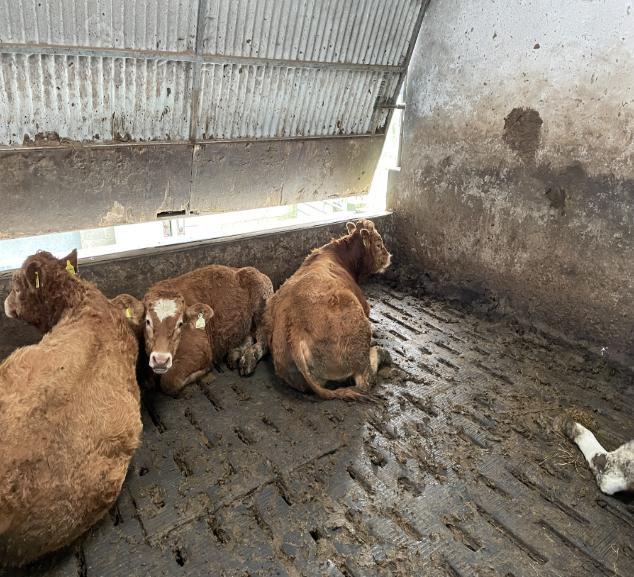
Picture 1: Adequate lying space is needed (Shed 1)
According to Teagasc Grange , overcrowding pens will have a negative effect on daily live-weight gains over the winter. So there are specific guidelines for farmers like Oliver to follow.
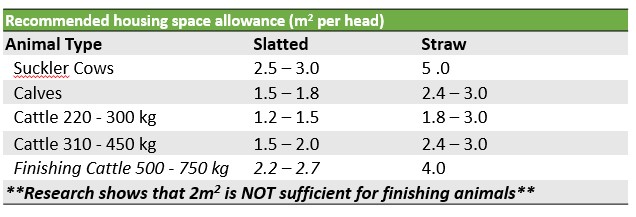
Example
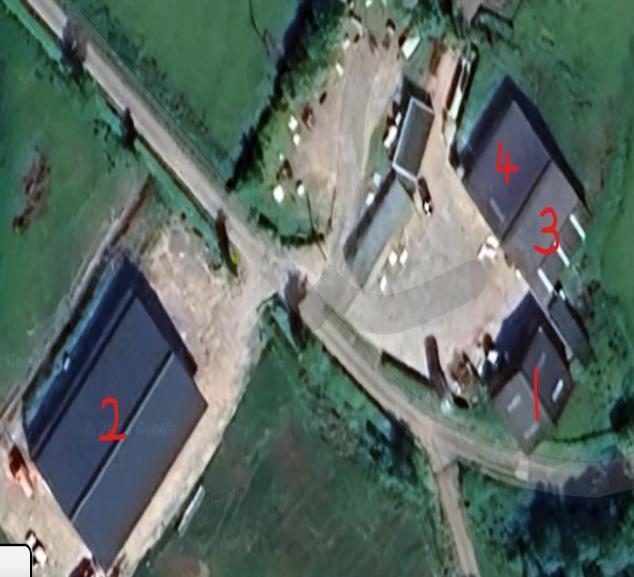
Picture 2: Oliver’s farmyard
The slatted shed marked 1 ,is a 2 bay double slatted shed . There are 4 standard pens each 4.6m x 3.9m which is 18 sq metres. In general Oliver will use 2 pens for weanlings which will be 300kg . According to the table above , each animal will need 1.5sq m each. Therefore each pen could hold a maximum of 12 weanlings.
The next step is to ensure that the 12 have adequate feed space. There are guidelines for this requirement also;

The 12 will be offered ad – lib silage so they wil need 300m each which is a total requirement of 3600mm. The pen is 4600mm long so there is plenty of feed space.
In order to maximise performance , Oliver will group the pens according to weight and ensures that there is plenty of clean water . He checks the bowls daily to ensure they are not soiled.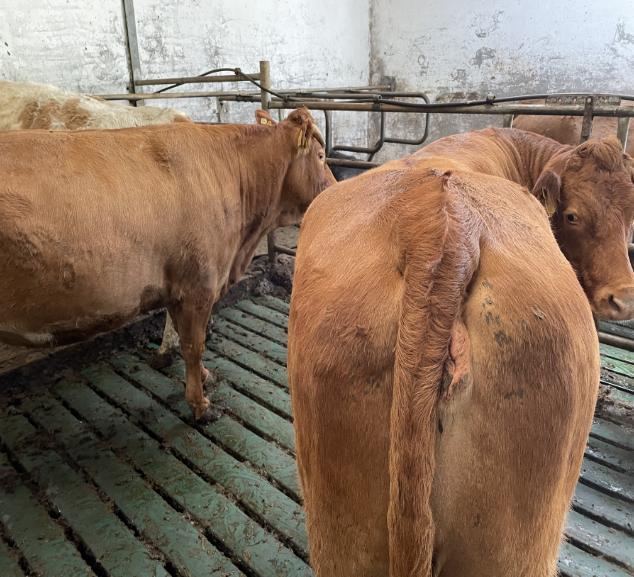
Picture 3: Cows get a lying space of 2.5 -3.0 sq metres each (shed 3)
Ventilation
Ventilation systems in livestock housing serve an important function in maintaining a comfortable animal environment. Ventilation systems continuously remove the heat, moisture and odours created by the livestock and replenish the oxygen supply by bringing in drier, cooler air from outside. Adequate air exchange also removes gases such as ammonia (NH4), hydrogen sulphide (H2S) and methane (CH4) which can be harmful to both the animal and farmer’s health. Efficient ventilation should also get rid of excess moisture, respiratory disease organisms and dust.
Signs of poor ventilation are:
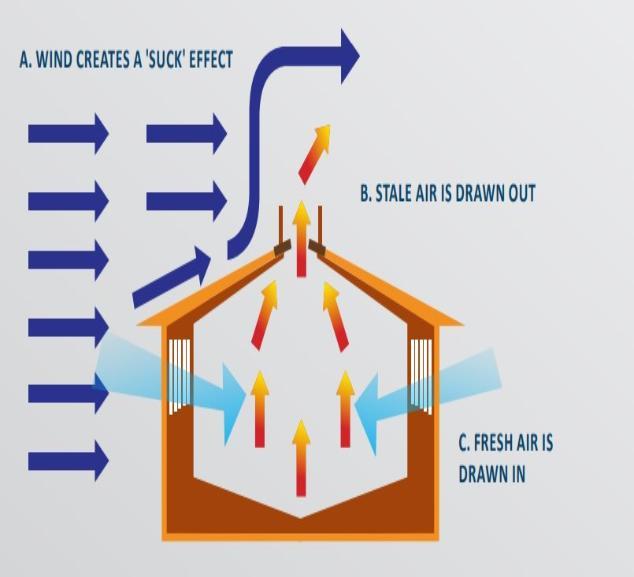
Benefits of clipping cattle
As cattle are housed, it can result in humid and high temperatures being created within a shed and cattle’s coats to grow thick and long as a result of decreased access to UV sunlight. By clipping the backs of the animal, it allows excess heat to leave the animal’s body and cool down more effectively – which helps reduce the risk of the animal contracting pneumonia.
Oliver’s son Shane will clip the backs and tails of all the cattle at the start of the housing when the coats are clean. According to Shane , clipping tails will also keep the animals clean especially the cows which is important pre-calving.
Another advantage is when treating for lice , the pour-on will have close contact to the skin.
The Silage Result
Oliver is very happy with the result of the first cut silage. Most farmers will look at the DMD first . The target is >72% and Oliver’s silage is 78.76% which is excellent. The next 2 parameters to look at is the Crude Protein and Dry Matter . The crude protein is 14.64% which is perfect . The silage is very dry at 43.35% – this high figure could limit intake.
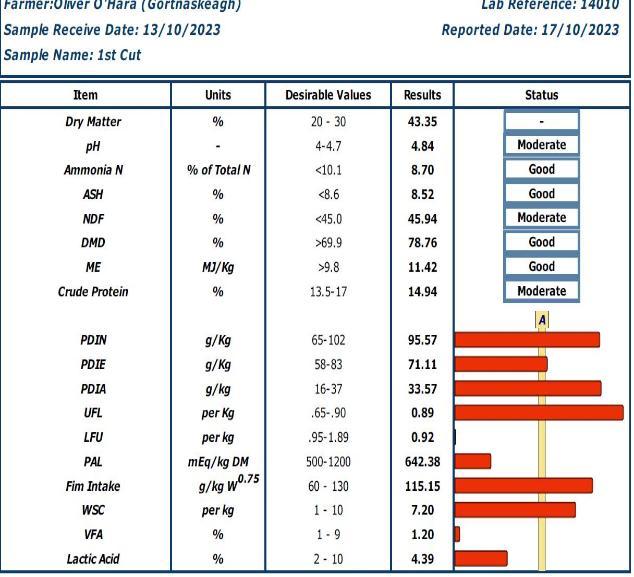
Oliver will feed this silage to his priority stock such as weanlings and any finishing stock. This type of high quality silage will reduce to requirement for meal.
During the winter the target live-weight gain per day is 0.6kgs for weanlings . With this type of silage , they should not need meal which is a substantial saving. Feeding a silage below 70%DMD would mean feeding 1.5 to 2 kgs of meal to gain that 0.6kgs/day.
Oliver will not give this silage to cows pre-calving and it is too good! He does not want the cows to get too fat prior to calving. However, it could be fed to cows post calving in February and March.
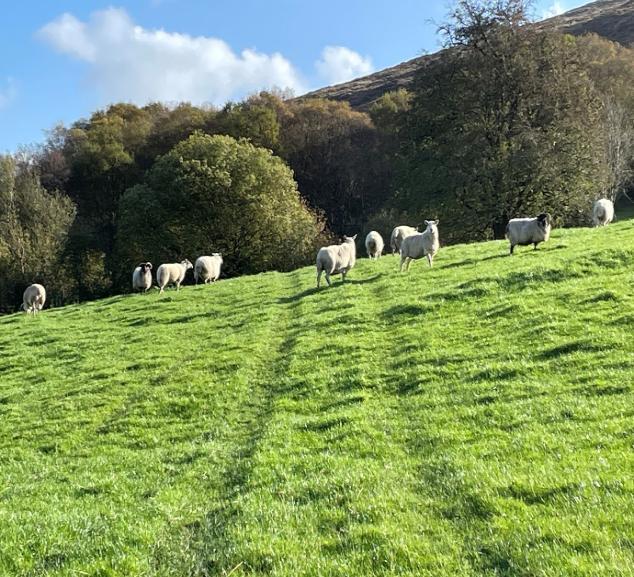
There are 3 groups of ewes and the rams where let out on the 12th of October.
Oliver will remove all 5 rams on November 15th with the ewe flock been housed shortly after that. They are currently of good quality grass.